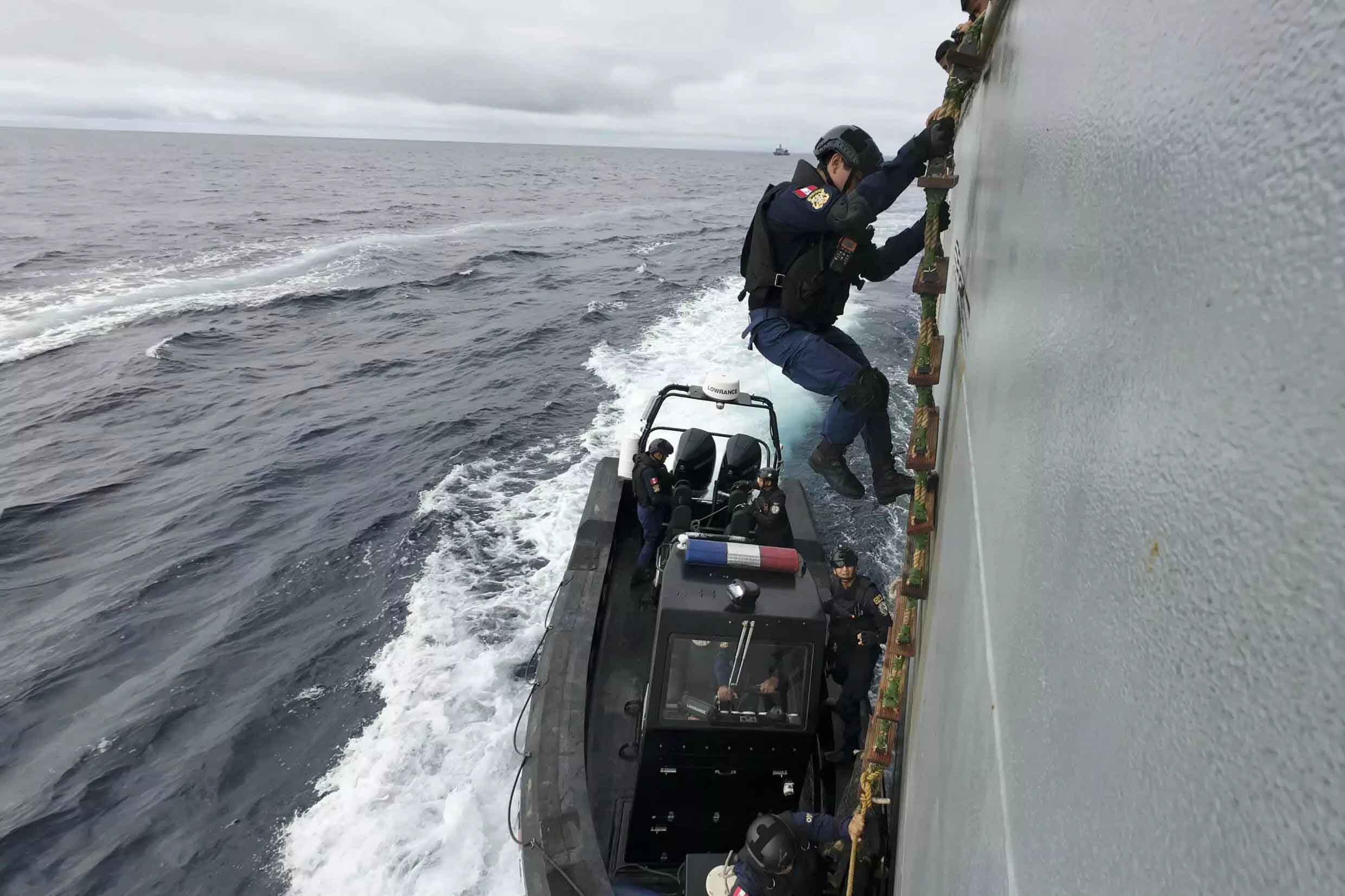Today, the vessel has been transformed for environmental patrols in the same waters, targeting predatory ships similar to its former self. Renamed Hualcopo after an Indigenous leader celebrated for his character and heroism centuries ago, the ship has taken on a new mission.
Previously known as the Fu Yuan Yu Leng 999, the 96-meter (315-foot) vessel was caught illegally fishing with 300 metric tons of fish on board, much of it prepared for transport to Asia. "It was shocking to see the quantity of fish in the holds, including commercial species and sharks with their fins removed," recounted navy lieutenant Jonathan Bastidas, who photographed the catch that day. Shark fins are highly prized as a delicacy in China and other parts of Asia.
Three years after its confiscation, the Hualcopo was assigned its new role. AFP joined Bastidas on the Hualcopo during a 14-nation maritime military exercise, Galapex III, aimed at combating poaching and other environmental threats to the Galapagos waters, where Charles Darwin developed his theory of evolution. Running from June 23 to July 9, the Hualcopo sailed as a symbol of the Ecuadorian navy's efforts to protect the fragile Galapagos ecosystem, a UN World Heritage Site home to many sharks.

Despite its new purpose and crew, remnants of the old ship remain. A finely carved wooden statue of Nezha, a Chinese god believed to offer protection, stands on the bridge, surrounded by burning incense and offerings of 10 and 25 cent US coins.
In 2017, the crew of the Fu Yuan Yu Leng 999 was sentenced to three years in prison, and the owners were fined $6 million. The ship’s holds, capable of carrying 640 tons, now store provisions for navy and coast guard ships patrolling Ecuador's waters. The vessel also delivers food and supplies to the islands during shortages.
The Hualcopo now sails through pristine turquoise waters inhabited by iguanas, turtles, fish, and birds unique to the Galapagos. Located 1,000 kilometers (600 miles) off mainland Ecuador, the archipelago attracts poachers, mostly Chinese. In 2020, Ecuador reported around 300 ships operating in its Exclusive Economic Zone with their radar systems turned off to evade detection.
Repainted gray and named after the pre-Columbian Indigenous leader Hualcopo Duchicela, who led resistance against the Incas, the ship's new name honors a historical figure from a dynasty that ruled parts of present-day Ecuador from the 10th to the 16th centuries, as recorded by Jesuit priest Juan de Velasco in the 18th century. Although historians question some of De Velasco's accounts, his works are valued as literary gems crucial to Ecuador's history.
"After being a poaching vessel transporting many sharks from the Galapagos maritime reserve, it now aids our fight against poaching," said Boris Rodas, commander of another ship involved in the recent military exercises off the Galapagos.
